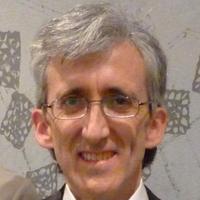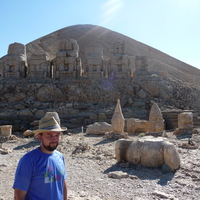
Jonathan Jong
Jonathan cut his teeth working on factors underlying perceptions of facial attractiveness and, separately, the relationship between religiosity and humor appreciation. Upon completing these undergraduate research projects and a BSc(Hons) at the University of Otago in 2007, he proceeded to do a PhD. on the relationship between death-anxiety and implicit and explicit religious belief. Jonathan has since moved to Oxford, to work on an ESRC Large Grant, entitled Ritual, Community, and Conflict.
Jonathan maintains active research programmes in Cognitive Science of Religion and Terror Management Theory, and on the implications of science and philosophy of science for religious belief. He is also an online editor at the Nonreligion and Secularity Research Network (http://nsrn.net/) and a section editor for its journal Secularism & Nonreligion, as well as an associate at LEVYNA (Laboratory for Experimental Research of Religion), Masaryk University (http://www.levyna.cz/home/) and The Faraday Institute for Science and Religion (http://www.st-edmunds.cam.ac.uk/faraday/).
Supervisors: Jamin B. Halberstadt and Gregory W. Dawes
Jonathan maintains active research programmes in Cognitive Science of Religion and Terror Management Theory, and on the implications of science and philosophy of science for religious belief. He is also an online editor at the Nonreligion and Secularity Research Network (http://nsrn.net/) and a section editor for its journal Secularism & Nonreligion, as well as an associate at LEVYNA (Laboratory for Experimental Research of Religion), Masaryk University (http://www.levyna.cz/home/) and The Faraday Institute for Science and Religion (http://www.st-edmunds.cam.ac.uk/faraday/).
Supervisors: Jamin B. Halberstadt and Gregory W. Dawes
less
Related Authors
Matthias Bluemke
Universität Heidelberg
Christopher M Kavanagh
University of Oxford
Thomas J . Coleman III
University of Bialystok
Jari Lipsanen
University of Helsinki
Carles Salazar
Universitat de Lleida
Robert B. Arrowood
The University of Tennessee at Chattanooga
David Dunaetz
Azusa Pacific University
Martin Lang
Masaryk University
InterestsView All (20)







Uploads
Papers by Jonathan Jong
threatened. In Study 2, however, we find that religious belief alleviates
implicit death anxiety amongst both believers and non-believers. These
findings suggest that religious beliefs can alleviate death anxiety at two
different levels, by offering symbolic and literal immortality, respectively.
anxiety and religiosity. In particular, Terror Management Theory’s
worldview defence hypothesis predicts that death anxiety is lowest among very religious and irreligious individuals, and highest among uncertain individuals. Likewise, the supposition that death anxiety motivates religious belief, which in turn mitigates death anxiety, predicts that religiosity increases with death anxiety among non-believers, and that death anxiety decreases as religiosity increases among believers. In both cases, a curvilinear relationship – specifically, an inverted-U curve – is predicted. We extracted 202 effect sizes from 100 studies for an “omnibus” religiosity meta-analysis, and six meta-analyses that examine particular dimensions of religiosity. We found high heterogeneity and a weak negative association between death anxiety and religiosity. A closer examination revealed that 10 of the 11 studies that directly tested for curvilinearity provided some support for an inverted-U pattern. The curvilinearity hypothesis cannot be ruled out, but more evidence – particularly on non-religious individuals, and in non-Western, non-Abrahamic contexts – is needed.
them – were that they were simply and unambiguously stated,
enticingly difficult, and generated yet more advances in mathematics
than just the solution of the problems themselves. In the spirit of
Hilbert, albeit in empirical mode, we pose the following question to
scholars of religion: What is the causal relationship between death anxiety and religious belief? This question we decompose into four subquestions: Do people fear death? Does religiosity covary systematically with death anxiety? Does death anxiety cause or enhance religious belief? Does religious belief mitigate death anxiety? On the face of it, this focus on the fear of death seems parochial; it is indeed narrow in scope, but so were most of Hilbert’s mathematical problems. Besides getting at a prominent intuition among laypeople and academics alike – that people are religious because they fear death – the route to answering our question will require scholars of religion to work together across disciplines, clarify our terms, design better measures and manipulations, and conduct cross-cultural research. Thus, as Hilbert put it, we believe that “the gain which science obtains from the problem” will be great.
of strong social bonds—identity fusion—previously associated with individuals' willingness
to self-sacrifice for the sake of their groups. Studies 1 and 2 were correlational studies conducted
on two different populations. In Study 1, we found that the extent to which Northern
Irish Republicans and Unionists experienced shared negative experiences was associated
with levels of identity fusion, and that this relationship was mediated by their reflection on
these experiences. In Study 2, we replicated this finding among Bostonians, looking at their
experiences of the 2013 Boston Marathon Bombings. These correlational studies provide
initial evidence for the plausibility of our causal model; however, an experiment was
required for a more direct test. Thus, in Study 3, we experimentally manipulated the salience
of the Boston Marathon Bombings, and found that this increased state levels of identity
fusion among those who experienced it negatively. Taken together, these three studies provide
evidence that shared negative experience leads to identity fusion, and that this process
involves personal reflection.
NB: The stimulus has been updated (Jan 13 2015) to correct an error.
See also:
https://www.academia.edu/10093242/Implicit_measure_of_religious_belief_Single-target_IAT
https://www.academia.edu/10093236/Implicit_Measure_of_Religious_Belief_Property_Verification_Task
threatened. In Study 2, however, we find that religious belief alleviates
implicit death anxiety amongst both believers and non-believers. These
findings suggest that religious beliefs can alleviate death anxiety at two
different levels, by offering symbolic and literal immortality, respectively.
anxiety and religiosity. In particular, Terror Management Theory’s
worldview defence hypothesis predicts that death anxiety is lowest among very religious and irreligious individuals, and highest among uncertain individuals. Likewise, the supposition that death anxiety motivates religious belief, which in turn mitigates death anxiety, predicts that religiosity increases with death anxiety among non-believers, and that death anxiety decreases as religiosity increases among believers. In both cases, a curvilinear relationship – specifically, an inverted-U curve – is predicted. We extracted 202 effect sizes from 100 studies for an “omnibus” religiosity meta-analysis, and six meta-analyses that examine particular dimensions of religiosity. We found high heterogeneity and a weak negative association between death anxiety and religiosity. A closer examination revealed that 10 of the 11 studies that directly tested for curvilinearity provided some support for an inverted-U pattern. The curvilinearity hypothesis cannot be ruled out, but more evidence – particularly on non-religious individuals, and in non-Western, non-Abrahamic contexts – is needed.
them – were that they were simply and unambiguously stated,
enticingly difficult, and generated yet more advances in mathematics
than just the solution of the problems themselves. In the spirit of
Hilbert, albeit in empirical mode, we pose the following question to
scholars of religion: What is the causal relationship between death anxiety and religious belief? This question we decompose into four subquestions: Do people fear death? Does religiosity covary systematically with death anxiety? Does death anxiety cause or enhance religious belief? Does religious belief mitigate death anxiety? On the face of it, this focus on the fear of death seems parochial; it is indeed narrow in scope, but so were most of Hilbert’s mathematical problems. Besides getting at a prominent intuition among laypeople and academics alike – that people are religious because they fear death – the route to answering our question will require scholars of religion to work together across disciplines, clarify our terms, design better measures and manipulations, and conduct cross-cultural research. Thus, as Hilbert put it, we believe that “the gain which science obtains from the problem” will be great.
of strong social bonds—identity fusion—previously associated with individuals' willingness
to self-sacrifice for the sake of their groups. Studies 1 and 2 were correlational studies conducted
on two different populations. In Study 1, we found that the extent to which Northern
Irish Republicans and Unionists experienced shared negative experiences was associated
with levels of identity fusion, and that this relationship was mediated by their reflection on
these experiences. In Study 2, we replicated this finding among Bostonians, looking at their
experiences of the 2013 Boston Marathon Bombings. These correlational studies provide
initial evidence for the plausibility of our causal model; however, an experiment was
required for a more direct test. Thus, in Study 3, we experimentally manipulated the salience
of the Boston Marathon Bombings, and found that this increased state levels of identity
fusion among those who experienced it negatively. Taken together, these three studies provide
evidence that shared negative experience leads to identity fusion, and that this process
involves personal reflection.
NB: The stimulus has been updated (Jan 13 2015) to correct an error.
See also:
https://www.academia.edu/10093242/Implicit_measure_of_religious_belief_Single-target_IAT
https://www.academia.edu/10093236/Implicit_Measure_of_Religious_Belief_Property_Verification_Task
The present research further explores the correlational and causal relationships between mortality-related concerns and religious belief and tests between two theoretical accounts of this relationship. Terror Management Theory’s worldview defense hypothesis proposes that confidence in one’s beliefs—whether religious, moral, political, or otherwise cultural—mitigates fear of death; concomitantly, thinking about death leads individuals to defend their own worldviews, regardless of their content. According to this account, increased cognitive accessibility of death-related thoughts should increase religious belief among religious individuals, and increase religious disbelief among non-religious individuals. On the other hand, recent theories in the cognitive science of religion suggest that human beings have a distinct cognitive inclination toward belief in supernatural entities, which mitigate fear of death by association with the possibility of literal immortality (e.g., afterlife scenarios, immortal souls, life-giving deities). According to this account, increased accessibility of death-related thoughts should increase religious belief for both religious and non-religious individuals, regardless of their prior worldview commitments.
The aim of Study 1 was to develop a self-report measure of religious belief. The Supernatural Belief Scale (SBS)—a 10-item questionnaire about cross-culturally common supernatural concepts—was found to be a reliable and valid measure of religious belief. This new scale was then applied in Study 2, which found that the statistical relationship between trait levels of death-anxiety and religious belief was moderated by categorical religiosity. For non-religious participants, fear of death increases as religious belief increases, whereas for religious participants, it decreases as religious belief increases. Study 3 then applied the SBS in an experimental study, examining the effects of mortality salience—increased death-thought accessibility—on religious belief. Consisting with Terror Management Theory’s worldview defense hypothesis, mortality salience led to increased belief among religious participants and increased disbelief among non-religious participants.
To address the possibility that Study 3’s results were confounded by strategic responding biases to which self-report measures are particularly susceptible, Study 4 employed an indirect measure of religious belief: the speed with which participants judge the existential status of religious concepts (e.g., God, Heaven). In this case, when primed with death, religious participants categorized religious items as “real” faster, and non-religious participants categorized religious items as “imaginary” slower, than participants in the control condition. These results suggested that, consistent with the distinct cognitive inclination account (and inconsistent with the worldview defense account), mortality salience leads to increased religious belief (or decreased religious skepticism) for everyone, regardless of prior beliefs; furthermore, they also raise the possibility that mortality salience affects religious belief differently at the explicit and implicit levels. Study 5 therefore examined the effects of mortality salience on implicit religious belief, using a single-target implicit association test, a well-established measure of implicit cognitive associations. This final study showed that mortality salience increased implicit religious belief for everyone, regardless of their self-reported religious affiliations and beliefs.
Taken together, these studies suggest a dual-process model of religious belief in which explicit and implicit beliefs are differentially affected by mortality salience. In particular, mortality salience leads to explicit worldview defense and, simultaneously, implicit religious belief. The implications of the present research for theories on the development and evolution of religion are discussed, as are the philosophical implications of such scientific theories of religion.